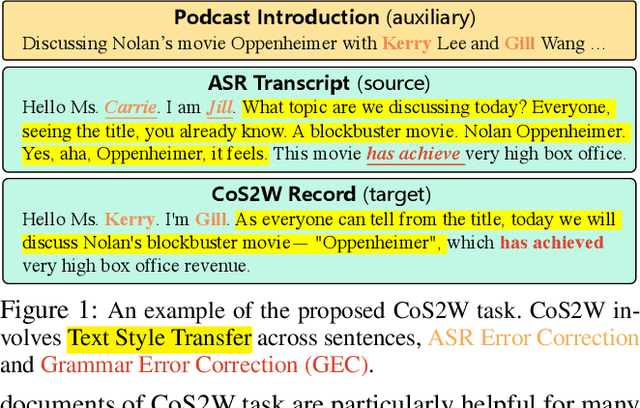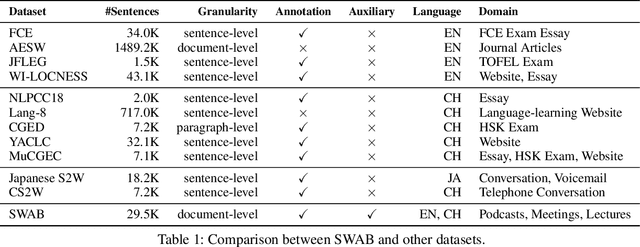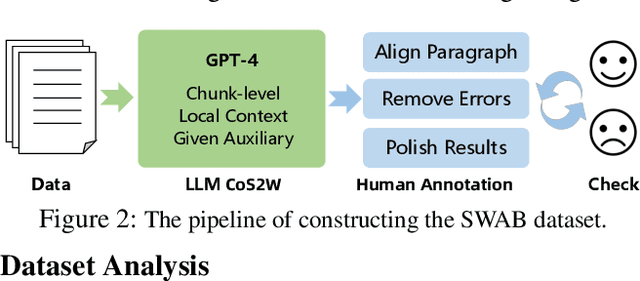Recording for Eyes, Not Echoing to Ears: Contextualized Spoken-to-Written Conversion of ASR Transcripts
Paper and Code
Aug 19, 2024



Automatic Speech Recognition (ASR) transcripts exhibit recognition errors and various spoken language phenomena such as disfluencies, ungrammatical sentences, and incomplete sentences, hence suffering from poor readability. To improve readability, we propose a Contextualized Spoken-to-Written conversion (CoS2W) task to address ASR and grammar errors and also transfer the informal text into the formal style with content preserved, utilizing contexts and auxiliary information. This task naturally matches the in-context learning capabilities of Large Language Models (LLMs). To facilitate comprehensive comparisons of various LLMs, we construct a document-level Spoken-to-Written conversion of ASR Transcripts Benchmark (SWAB) dataset. Using SWAB, we study the impact of different granularity levels on the CoS2W performance, and propose methods to exploit contexts and auxiliary information to enhance the outputs. Experimental results reveal that LLMs have the potential to excel in the CoS2W task, particularly in grammaticality and formality, our methods achieve effective understanding of contexts and auxiliary information by LLMs. We further investigate the effectiveness of using LLMs as evaluators and find that LLM evaluators show strong correlations with human evaluations on rankings of faithfulness and formality, which validates the reliability of LLM evaluators for the CoS2W task.
 Add to Chrome
Add to Chrome Add to Firefox
Add to Firefox Add to Edge
Add to Edge